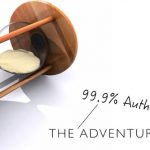Asking for help is hard. Better to go-it-alone, like a swashbuckling action hero: Lara Croft, Indiana Jones, Han Solo (Solo!)—the list goes on and on.
I bought into this particularly American concept of self-reliance in my youth. The “thanks—I’m good!” mindset fit with my independent nature, and pride baked into my Greek DNA.
As we all know, pride goeth before a fall. And boy did I fall hard after a year of going it alone as my mother’s primary caregiver. I rarely asked for help—less because I thought doing so was a sign of weakness than because I thought I had everything under control.
Silly me. I learned the hard way that asking for help isn’t a sign of weakness, it’s a sign of strength and wisdom. Embracing a form of self-help not found on any bookshelf, I learned to ask for—and at times demand—assistance with my caregiving duties, and speak openly about how exhausting it was to be on call 24/7.
In her book Mayday! Asking for Help in Times of Need author M. Nora Klaver writes “Asking for help has become a shameful signal of weakness and vulnerability. [But our] calls for help have the potential to refresh us, to renew our relationships, and to generate different futures based on compassion, faith and gratitude.”
If you’re caring for a loved one with dementia, a wealth of print and video resources are available at Care2Caregivers. The staff at this Rutgers University-based organization is also available to help you find the best resources for your specific situation. Call their toll-free number,: 800-424-2494 and ask for help. You’ll feel less isolated.



 Scattered: My Year As An Accidental Caregiver is available in paperback and eBook at
Scattered: My Year As An Accidental Caregiver is available in paperback and eBook at



